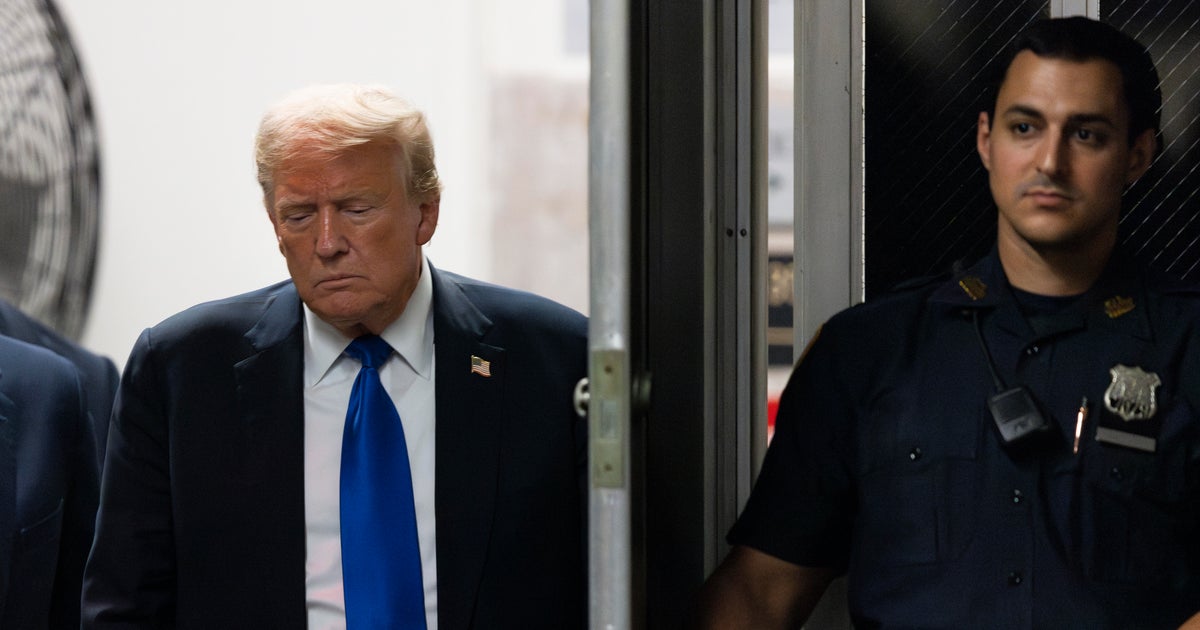
Washington — Former President Donald Trump’s conviction on all 34 state felony counts in New York may mark the close of the trial stage in the hush-money case, but a trio of prosecutions continue to loom over the former president and presumptive Republican presidential nominee.
Trump is still facing charges in two cases brought in federal courts in South Florida and Washington, D.C., by special counsel Jack Smith and one prosecution in state court led by Fulton County, Georgia, District Attorney Fani Willis.
The cases are proceeding slowly, and Trump has sought to delay any trials until after the November presidential election. If he wins a second term in the White House, Trump could order the Justice Department to drop the federal prosecutions or, if convicted on federal charges before then, he could try to pardon himself, but this has never been done and may face a legal challenge.
Here is where each of the three remaining cases stand:
The documents case
In a case brought in federal court in South Florida, Trump is charged with 40 counts stemming from his alleged mishandling of sensitive government records after leaving the White House and efforts to obstruct the Justice Department’s investigation. Two others were charged alongside Trump, his aide Walt Nauta and Mar-a-Lago property manager Carlos de Oliveira. All three defendants have pleaded not guilty.
A trial in the case was set to begin May 20, but U.S. District Judge Aileen Cannon, who is overseeing the proceedings, indefinitely postponed it. Cannon, appointed to the bench by Trump, cited pending pretrial motions, issues involving how classified evidence would be used in the case, and other pretrial and trial preparations as justification for delaying the trial.
The judge has yet to rule on several requests by Trump and his co-defendants to dismiss the charges against them that were filed in February. The former president has argued the indictment should be tossed out on the basis of prosecutorial misconduct, vindictive prosecution and presidential immunity. Smith and his team have urged Cannon to deny Trump’s motions and rejected the allegations about the prosecution.
Cannon has continued to unseal filings that shed light on proceedings that occurred during the federal investigation into Trump’s handling of records marked classified after the end of his presidency. More documents could be made public throughout the coming months.
The 2020 election case
The second federal prosecution brought by Smith, this one in Washington, D.C., involves Trump’s alleged plot to subvert the transfer of power after the 2020 presidential election. He was charged with four counts in August 2023 and pleaded not guilty.
U.S. District Judge Tanya Chutkan, who was assigned to the case, scheduled a trial to begin March 4. But proceedings have been on hold since December as Trump appealed adverse rulings that found he was not entitled to sweeping immunity from federal prosecution.
Chutkan and a unanimous panel of three judges on the U.S. Court of Appeals for the District of Columbia Circuit ruled Trump is not shielded from criminal charges by presidential immunity. Trump appealed to the Supreme Court, which heard arguments in April over whether a former president enjoys presidential immunity for allegedly official acts undertaken while in the White House.
The high court has not yet issued a decision, but is expected to do so in the coming weeks. If Trump prevails, it would bring Smith’s prosecution to an end. But if the Supreme Court sides with the special counsel, it would clear the way for proceedings to resume.
Some of the justices appeared likely to recognize some level of immunity from federal prosecution for a former president’s official acts, but signaled they could send the dispute back to the lower courts for additional proceedings over whether Trump’s alleged actions surrounding the 2020 election were taken in his capacity as president or a private citizen.
A ruling that requires the lower courts to conduct further analysis would make it unlikely a trial is held before the November presidential election.
The Georgia election case
A Fulton County grand jury indicted Trump and 18 allies in August 2023 in a sprawling racketeering case stemming from an alleged scheme to overturn the results of the 2020 presidential election in Georgia.
Trump was initially charged with 13 state felony counts, but three of them were tossed out by Fulton County Superior Judge Scott McAfee, who is overseeing the case. Trump pleaded not guilty to all charges. Willis is appealing the dismissal of some of the counts.
Of the 18 original co-defendants, four pleaded guilty after reaching plea deals with prosecutors.
A trial date has not yet been set in the Fulton County case, and proceedings were derailed for months after one of Trump’s co-defendants, Michael Roman, sought to have Willis and her office removed from the case. Roman accused Willis and Nathan Wade, a special prosecutor hired to work on the investigation, of having an improper romantic relationship from which Willis financially benefited.
Trump and seven others joined Roman’s effort to disqualify Willis from the case and have the indictment dismissed.
Willis and Wade admitted they were romantically involved, but denied that Willis financially benefited from it. Both said their relationship began after Wade’s hiring in November 2021 and ended in the summer of 2023. McAfee ultimately rebuffed the request to kick Willis and her office off the case but said Wade had to resign, which he did.
Trump and his co-defendants appealed McAfee’s decision, and the Georgia Court of Appeals agreed to review the ruling.
The former president has sought to dismiss the indictment on numerous grounds, including that he has absolute immunity from prosecution and the charges violate the First Amendment. In April, McAfee rejected Trump’s bid to have the charges tossed out on First Amendment grounds. Trump and his allies are seeking to appeal that order.
